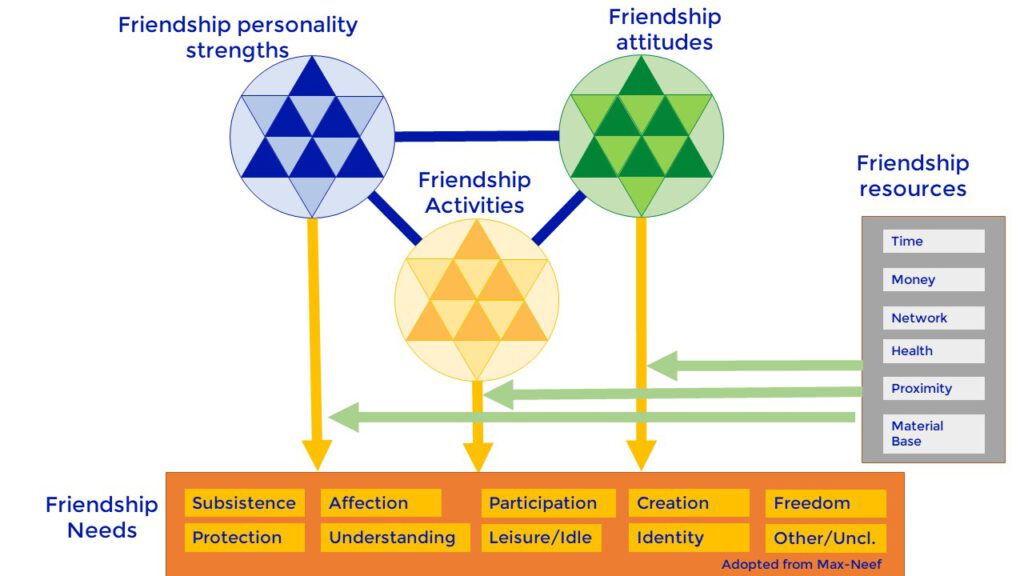Whilst the most briliant minds of mankind have thought about the topic of what is friendship (Socrates, Plato, Aristotle, Cicero, St. Augustine and St. Aquinus and then many more in enlightenment and subsequent eras), and pretty much it can be assumed that anything that can be said or deduced by a sharp mind with a sharp pencil, has been said. It is however not being read enough.
Secondly the research and writings are in usually four different disciplines: philosophy, psychology, sociology and then a more pop-science contemporary literature. Different definitions abound, even within those disciplines (cf. CS Fischer 1982 – what do we mean by friend). So in order to answer Fischers question, a proper framework first needs to be setup.
By scraping about 10000 statement excerpts from literature and classifying this seems to be now realistic: About 90 % of the chosen extracts could be mapped to one or more of aspects within the framework. By this tagging process it is also possible to then compare the emphasis of works from Aristotle or Cicero to contemporary works such as Greif or Degges-White to Influencer Videos (e.g. Anna Akana on Friendships) or Ted Talks (e.g. Flowers on Five People You need) or Christian Sermons (e.g. Lee and Lee, HTB ‘How to Relate well’ ) on the same dimensions, finding commonalities and differences.

This process is now ongoing, in order to further validate this framework against the insights and opinions of the centuries and cultures.
If this framework proves to work, I can then focus on the drivers that make friendships ‘good’ or ‘better’ and in particularly longer lasting. And of course it is possible to analyse the inhibitors, such as in what ways health in old age inhibits our capability to interact with friends, or time availability during our working years does this.
The following draft paper elaborates on the structure given by the frequency analysis.
On the assumption that it does work I designed the friendship personality test focusing on the strengths, attitudes and activities, as well as the friendship need and gift love assessment which you can do for free.
Please feel free to check back at some point.
Thanks, Christian
